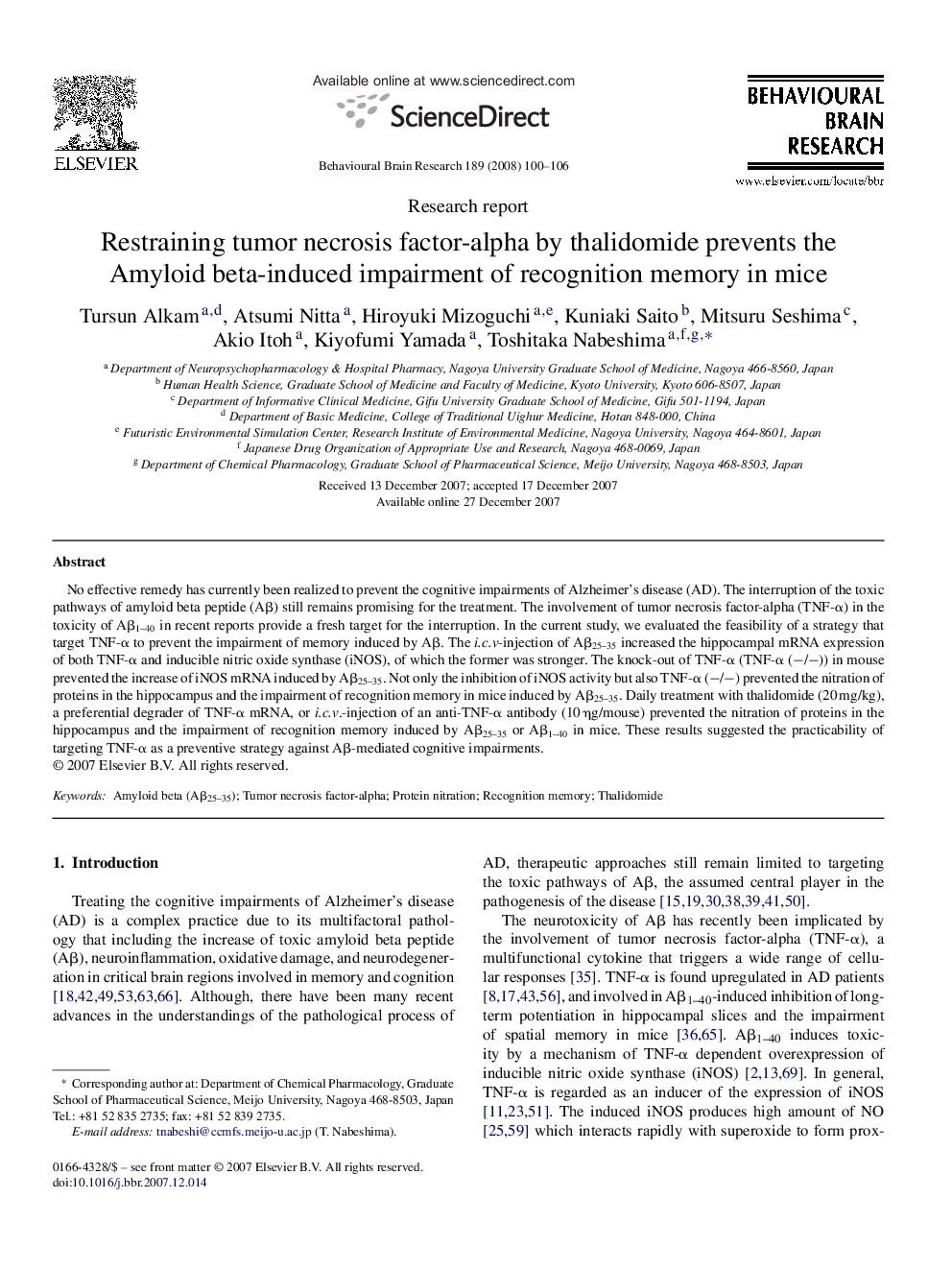| Article ID | Journal | Published Year | Pages | File Type |
|---|---|---|---|---|
| 4315282 | Behavioural Brain Research | 2008 | 7 Pages |
No effective remedy has currently been realized to prevent the cognitive impairments of Alzheimer's disease (AD). The interruption of the toxic pathways of amyloid beta peptide (Aβ) still remains promising for the treatment. The involvement of tumor necrosis factor-alpha (TNF-α) in the toxicity of Aβ1–40 in recent reports provide a fresh target for the interruption. In the current study, we evaluated the feasibility of a strategy that target TNF-α to prevent the impairment of memory induced by Aβ. The i.c.v-injection of Aβ25–35 increased the hippocampal mRNA expression of both TNF-α and inducible nitric oxide synthase (iNOS), of which the former was stronger. The knock-out of TNF-α (TNF-α (−/−)) in mouse prevented the increase of iNOS mRNA induced by Aβ25–35. Not only the inhibition of iNOS activity but also TNF-α (−/−) prevented the nitration of proteins in the hippocampus and the impairment of recognition memory in mice induced by Aβ25–35. Daily treatment with thalidomide (20 mg/kg), a preferential degrader of TNF-α mRNA, or i.c.v.-injection of an anti-TNF-α antibody (10 ηg/mouse) prevented the nitration of proteins in the hippocampus and the impairment of recognition memory induced by Aβ25–35 or Aβ1–40 in mice. These results suggested the practicability of targeting TNF-α as a preventive strategy against Aβ-mediated cognitive impairments.
